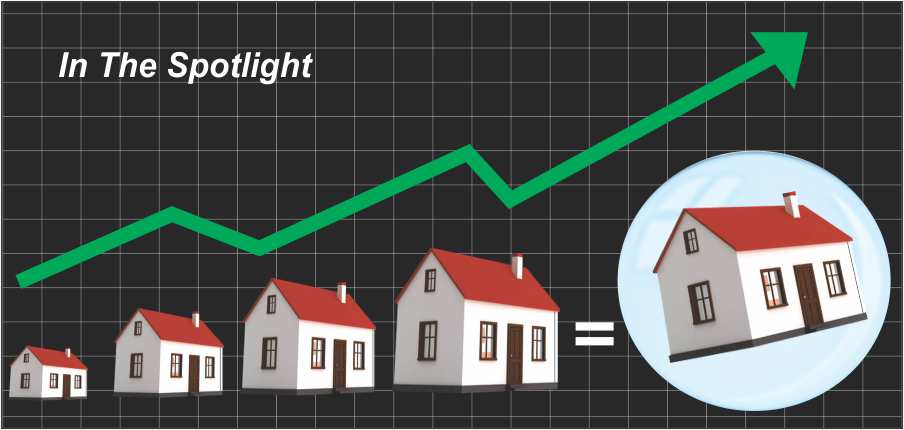It was in 2008, the last time when the real estate bubble burst. And by that experience you would probably be hesitating to put your step into the real estate market again. So what is Real Estate Bubble? A real estate bubble is an increase in housing prices fueled by demand, speculation and exuberance. It usually starts with an increase in demand, in the face of limited supply which takes a relatively long period of time to restore and increase. Speculators enter the market, further driving demand. At some point, demand comes down or stagnates and at the same time supply increases, resulting in a sharp drop in prices, and the bubble bursts.
If someone is buying during a bubble, overpaying for the property, then either they may be forced to sell the property for much less than the property is worth of, or to stay longer until enough equity is built up to sell the property. So, if someone is planning to buy a property then they should understand the signs that point towards a real estate bubble.
Unstable Loans
Prior to recession it has been observed that subprime lending is not a healthy practice. As the subprime lending focuses on providing loans to that population who otherwise don’t have access to the credit market. As these loans are characterized by higher interest rates and are less favorable in terms to compensate the higher credit risk. On the other side it has been observed in the past that packaging subprime lending with mortgage-backed-securities (MBS) has contributed to global financial crisis.
Financial Leverage
When someone takes out a mortgage, the money is leveraged out. As the leverage and down payment for a particular asset are inversely proportional to each other, less is the down payment more is the leverage because here lender’s money is used to make the purchase. Leveraging affects the financial stability as the gains or losses get multiplied with increased leverage. Loses creep into the scenario if the financing costs exceed the income from the asset due to the dip in its prices.
Rise in Interest Rates
If people are to make a decision about buying a property based on the fact that the interest rates are really very low, they might actually end up buying the property. But as soon as the interest rates rise, demand for the properties fall. Even if the interest rates increase by 1%, all the properties suddenly become unaffordable and the property market sinks very low. Hence, people should be very mindful about this while deciding to go ahead with a property purchase.
Illusion of signs
Many of us get confused if the real estate market is in a bubble or not leading to a wrong decision as many a times the perception about the bubbles is wrong. Bubbles just don’t refer to the rapid price appreciation, rather they refer to the “unsustainable” rapid price appreciation. Buyers should not just buy a house that is suitable for their family at present, and assume they can afford it over a long haul. Instead they need to make a decision of buying a property that benefits them even if the real estate prices drop significantly.
Rise in Property Prices vs Salaries
When the property prices are rising at a high rate but the salary isn’t, then the person is left with two options: continue to rent, or buy a property he can barely afford. So, here arises a dilemma of whether he should continue renting and wait for some time to buy a house, or just go ahead calculating the least amount of loan & EMIs that he can afford. Local real estate markets are exceeding the capacities to absorb prices and this could be the sign of froth in the market. Rapid property price shoot up that don’t match the wage growth is the prime matter of concern. But as long as the credit conditions from the lenders are tight there won’t be any run away price inflation.
Rate of Foreign Demand
In an International city when the foreign national buyer demand slows- markets suffer, foreign investment plays an important role in deciding the real estate market, because sometimes issues linked to a nation such as an epidemic or natural disaster warning affects the foreign investment. At the national level it may seem to be quiet small but globally it may prove to be “The straw that broke the camel’s back”.
Financial Crisis Due to Real Estate Bubble
Real estate bubbles and the speculations associated with them tend to cause financial crisis, which may lead to lower growth, higher unemployment and higher government debt. In reality, only the banks and those with a number of properties benefit from high property rates. High property rate means people will have to take mortgages for a longer period of time, which means more money for the banks in the form of interest.
Now it depends on the masses as well as financial critics to decide whether “The Real Estate Bubble” is just an illusion or reality!
Ready to Pop the Real Estate Bubble!


